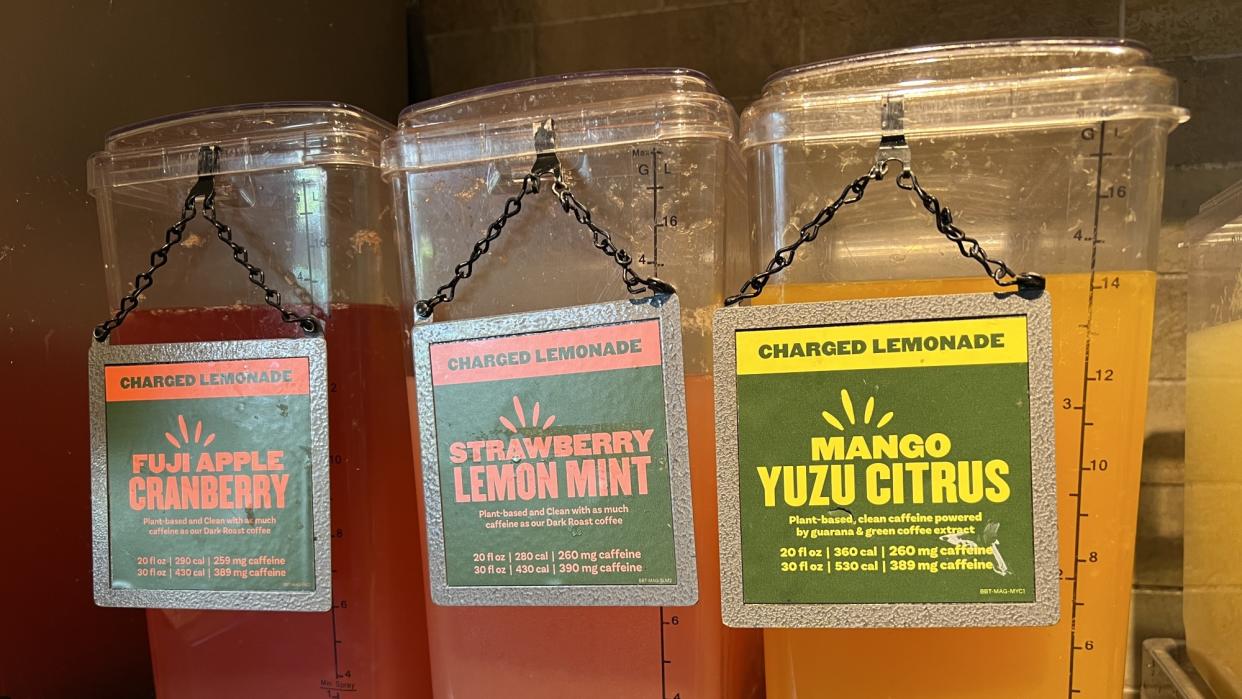The dangers of too much caffeine

A 21-year-old student with a heart condition died last September after drinking Panera Bread’s Charged Lemonade, a heavily caffeinated beverage. Her family is now suing the restaurant chain, alleging that Panera Bread "failed to properly warn" the public of the caffeine content of the drink, The New York Times reported. "We strongly believe in transparency around our ingredients," Panera Bread wrote in a statement. "We will work quickly to thoroughly investigate this matter."
Panera Bread now has a banner on its website warning of the drink's high caffeine content. After news of the student's death, many were shocked to learn just how much caffeine this was; the large 30-ounce Charged Lemonade contains 390 milligrams of caffeine and the regular 20-ounce size contains 260 milligrams, per the Panera Bread website. A healthy adult should only consume up to 400 milligrams of caffeine a day, according to the U.S. Food and Drug Administration (FDA), meaning one large Charged Lemonade has almost the entire daily recommended allowance. Too much caffeine can lead to dangerous side effects and, as has been seen in extreme cases, even death.
What does caffeine do to the body?
Caffeine is a compound that occurs naturally in coffee beans, tea leaves, cacao pods and some other plants. It can also be made synthetically and is added to some drinks, foods and medicines. The chemical "stimulates the brain and central nervous system, helping you stay alert and prevent the onset of tiredness," according to Healthline. Once consumed, it gets absorbed quickly and can impact multiple organs including the brain, the heart and the stomach.
Moderate quantities of caffeine can improve your mood, brain function and energy levels while boosting your metabolism and burning fat. But since caffeine is technically a drug, "we can build up a tolerance to it, which just means we require more caffeine to feel the same effects," registered dietician Jordan Hill told USA Today. "It might take more caffeine to feel those things, but at the same time, as that amount of caffeine goes up, so does the risk for side effects."
For the most part, caffeine consumption in moderation can be safe daily. However, too much caffeine can lead to negative and sometimes dangerous outcomes, which is why the FDA recommends capping caffeine intake at 400 milligrams per day. Caffeine can be present in a number of foods and drinks, and "each of these items have different, varying amounts of caffeine in them," Hill added. So if "we're consuming them throughout the day," this can make it easy to accidentally go over the FDA-recommended amount, Hill added.
What happens if you have too much?
Consuming too much caffeine, especially at a fast pace, can lead to an overdose, resulting in cardiac arrest, breathing trouble, dizziness, nausea, vomiting and seizures, according to Mount Sinai. The amount required to overdose varies from person to person, but those who are pregnant, breastfeeding, have a pre-existing heart condition or have high blood pressure are more at risk, per Medline Plus.
While many people first think of caffeine as a stimulant in coffee, "the more serious risks of caffeine are mostly related to heavy consumption from use in energy drinks and in supplement form," Dr. Stephen Devries, a preventive cardiologist, said in a report by the American Medical Association (AMA).
However, "even in moderate amounts [caffeine] can cause jitteriness and anxiety" and "can also increase respiratory rate, heart rate and blood pressure," Shannon Kilgore, a neurologist at the Stanford University School of Medicine, said in the AMA report. This is especially true for those who suffer from anxiety disorders. "Everyone breaks down the caffeine in their body at different rates," Kelly Morrow, a registered dietitian, told USA Today. "Those who drink a lot or break it down slowly may have trouble sleeping and may feel anxious," and "some people have had a dangerous irregular heart rhythm after drinking energy drinks."

